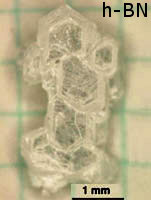
Photo from wikipedia
In this work, density functional theory is adopted to study the electronic and magnetic properties of MoS2 monolayers combined with a single S vacancy defect and a group VIII (G8)… Click to show full abstract
In this work, density functional theory is adopted to study the electronic and magnetic properties of MoS2 monolayers combined with a single S vacancy defect and a group VIII (G8) atom dopant, in which the dopant is incorporated via Mo substitution. The calculated results show that the magnetic properties of monolayer MoS2 can be tuned by changing the distribution of the G8 atom and S vacancy. The S vacancy tends to decrease the net magnetic moment of the doped system when these two defects are in their closest configuration. By adjusting the distance between the dopant and the S vacancy, the doped MoS2 monolayer may show a variable net magnetic moment. In particular, all of the Ni-doped MoS2 monolayers show zero magnetic moment with or without an S vacancy. The mean-field approximation is used to estimate the Curie temperature (TC). Our results show that Fe, Co, Ru, Rh, Os and Ir-doped MoS2 monolayers are potential candidates for ferromagnetism above room temperature. The density of states calculations provide further explanations as to the magnetic behavior of these doped systems. These results provide a new route for the potential application of atomically thin dilute magnetic semiconductors in spintronic devices by employing monolayer MoS2.
Journal Title: RSC Advances
Year Published: 2018
Link to full text (if available)
Share on Social Media: Sign Up to like & get
recommendations!